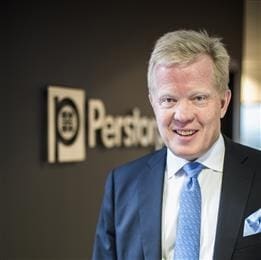- ISO developing a global mass balance standard for the industry
- New standard to help drive shift towards recycled and renewable materials
- Call to include traceability and transparency for credibility
Malmö/Stockholm July 8, 2020 – The International Organization for Standardization (ISO), has started work to establish a globally recognized mass balance standard for the industry. It’s hoped the new standard will drive real change, supporting the development of recycled and renewable raw materials, and the production processes needed.
As this work gets underway, representatives for the Swedish industry, recognized as forerunners for sustainable business: Perstorp Holding AB, Trioplast Industrier AB, Sekab and Johanneberg Science Park, have outlined the key principles they believe the new standard needs to embrace for maximum credibility and sector transformation.
The mass balance approach is a mechanism to start the large-scale phasing out of fossil raw materials with the goal of a fully converted industry. It is about mixing fossil and recycled or renewable in existing systems and processes while keeping track of their quantities and allocating them to specific products. The actual carbon molecules in the product may not be recycled or renewable, but through a third-party certificate, the recycled or renewable content is verified. Mass balance is a well-known methodology used within the energy sector for electricity, by Forest Stewardship Council for wood, Fair Trade and the Better Cotton Initiative, among others. Whilst there is a consensus among most parts of the sector that mass balance is crucial to accomplishing the transition of the industry, there are currently different ways of applying mass balance. Some of the voluntary schemes for mass balance which are used today accept transfer of credits between both geographies and products.
Mats Bergh, CEO of Johanneberg Science Park states: “Research show that there are big differences in the way mass balance methods are used within the industry, making it difficult to talk about mass balance as one method. When a global standard is forming, it is important that it is transparent, credible and drive real change and development of new raw materials and production processes.”
The Swedish group of companies is urging the ISO not to accept the transfer of credits between geographies, or products, as they say that allowing this within the new global standard would not only harm the credibility of the whole industry, leading to greenwashing accusations, it would also obstruct the real change and development of the raw materials and production processes needed. They are calling for the concept of Traceable Mass Balance to underpin the new standard. This acknowledges the basic principles of mass balance but applies Chemical and Physical traceability.
Chemical traceability means: that only the raw materials used to make the product can be used to enable the shift, and that the recycled/renewable raw material can only replace its own part/share of the product. Physical traceability means: a production process exists within the site for producing the product from the recycled/renewable raw material(s), and that the recycled/renewable raw materials have to be shipped to, and used at, the production site producing the recycled/renewable product. A producer cannot transfer recycled/renewable credits from one site to another. Applying chemical and physical traceability means that it is possible to find recycled or renewable material in the product and that the real transition of that product is gradually taking place from fossil to fully recycled and/or renewable.
Andreas Malmberg, CEO of Trioplast explains, “Mass balance without chemical and physical traceability is comparable to making a pancake organic by substituting the milk for more organic eggs, by adding organic orange juice or by transferring “organic credits” from organic eggs used in a different bakery. We are afraid that doing so risk undermining the credibility of the entire industry. Applying chemical and physical traceability gives credibility, but more importantly it drives real change and supports the development of the recycled and renewable raw materials as well as the production processes needed.”
On behalf of the four companies, Jan Secher, CEO of Perstorp said, “We are proud to be leading by example and are excited to see the development of a standard that really pushes our industry forward. Traceable Mass Balance can do this, and we hope that many more in our sector will join this quest so that we, together, can set a new standard for a sustainable industry.”

